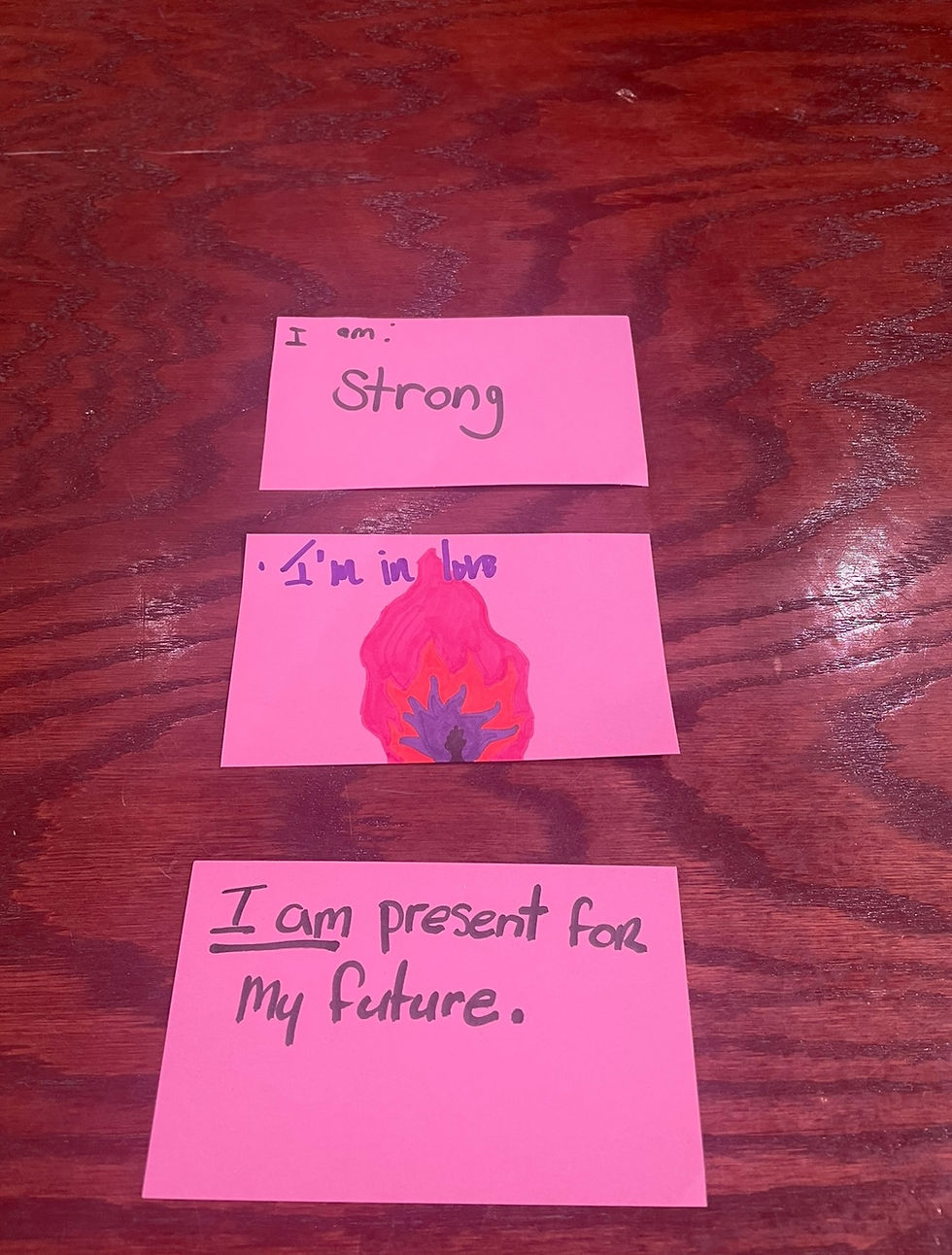
“I am the adult soul. I model behavior for everyone, especially me.” - Lana Boone
- Karen Cuthrell
- Aug 27, 2024
- 3 min read

Karen Cuthrell & Mona King (Karen’s Marvelous Mentor)
Attending the Artists Thrive conference was an enlightening experience that expanded my understanding of emotional intelligence and challenged me in unexpected ways. This event brought together a diverse group of artists who participated in peer-to-peer workshops designed to push us out of our comfort zones and into a space where we could thrive. As someone who has always believed in the power of emotional intelligence, I was eager to engage in these workshops, share my knowledge, and learn from others. What I experienced, however, went far beyond my expectations.
Emotional Intelligence and Neuroplasticity: A Workshop That Resonated
During the conference, I led a workshop on emotional intelligence. The response was overwhelmingly positive, with participants actively engaging in the exercises and discussions. One of the highlights was our conversation about neuroplasticity—how the brain's ability to reorganize itself plays a crucial role in how artists can enhance their creative processes. This workshop underscored the importance of understanding our emotional and cognitive functions to unlock our potential as artists.
However, not all of my experiences at the conference were smooth sailing. In my workshop, a participant challenged my perspective on adverse childhood experiences (ACEs), asserting that it is impossible to overcome them fully. This led to a respectful yet intense exchange of views, and ultimately, the participant chose to leave the workshop. This was a first for me, and it made me reflect deeply on the impact of my words and the emotional weight they can carry.
Later, I sought out the participant to ensure that I had not inadvertently offended them. They assured me that I had not, but I still felt compelled to apologize if I had caused any discomfort. This moment reminded me of the importance of grace in all interactions—especially in spaces where emotions run high and personal experiences are being shared.
The next day, I attended a workshop led by the same participant who had left mine. Ironically, I felt agitated by some of the content presented, particularly the discussion of emotions and their origins in the heart, not the brain. My intern, who was also present, later questioned some of the information shared, adding another layer of complexity to the experience. During the workshop, the facilitator mentioned that they had been triggered by my previous presentation, particularly regarding their adverse childhood experiences. This was a profound moment for me, highlighting the delicate balance required when discussing such sensitive topics.
Through this experience, I learned several valuable lessons:
Know Your Emotional Intelligence: Before stepping into any workshop or presentation, you must fully grasp your emotional intelligence. This includes being aware of how your words and actions might impact others, especially when discussing topics as personal as childhood trauma.
Practice Grace: Grace is not just a nicety but a necessity. In every interaction, especially in emotionally charged environments, extending grace to others and yourself is crucial. This means being patient, understanding, and forgiving when things are unplanned.
Be Emotionally Bold and Ready: Facilitating emotional intelligence workshops requires emotional boldness and readiness. As my intern asked me, "How do you stand and present without showing emotion while others are visibly emotional?" My answer was simple: I have done my work. I have trained myself to maintain composure, not because I am unemotional, but because I understand the importance of creating a safe space for others to express their emotions.
The Artists Thrive conference was more than just a learning experience—it was a journey into the depths of emotional intelligence and grace. It taught me that while being knowledgeable and prepared is important, compassion and understanding are equally important. In this line of work, we are not just educators or facilitators; we are caretakers of the emotional well-being of those we engage with. And in that role, we must be ready to extend grace, even in the face of disagreement or discomfort.
As I continue my work, I carry these lessons with me, knowing that they will make me a better facilitator and a more empathetic and emotionally intelligent person.






Comments